

Jian Liu
Assistant Professor of Electrical Engineering and Computer Science, University of Tennessee
Jian Liu is an Assistant Professor in the Min H. Kao Department of Electrical Engineering and Computer Science at The University of Tennessee, Knoxville. He leads Mobile Sensing and Intelligence Security (MoSIS) Lab @ UTK. Before joining UTK, he received his Ph.D. degree from Rutgers, The State University of New Jersey. His research interests span Robust and Trustworthy AI and ML, Human-Computer Interaction, Computational Sensing, Mobile Security, and Smart Healthcare. His research work has been published at top-tier mobile-computing/AI/security/HCI venues (e.g., S&P/Oakland, ACM CCS, ACM MobiCom, ICML, CVPR, AAAI, IJCAI, ECCV, ACM MobiSys, ACM SenSys, ACM UbiComp, and IEEE ICASSP) and has received regular media attention from outlets, such as BBC News, Yahoo News, MIT Technology Review, NBC New York, IEEE Spectrum, WCBS TV, and Voice of America TV, etc. He was recognized as one of the Stanford’s World’s Top 2% Most Cited Scientists. Additionally, he holds seven U.S. patents, two of which have been licensed to industrial companies.
Less ![]()


Jiangyue Ju
PhD Student in Earth and Environmental Sciences, University of Waterloo
Currently I am a PhD candidate in Hydrogeology at the University of Waterloo
Less ![]()
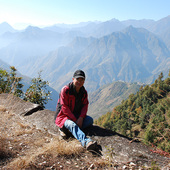
Jianhui Liu
Senior Researcher, Yunnan Provincial Institute of Cultural Relics and Archaeology
Less ![]()
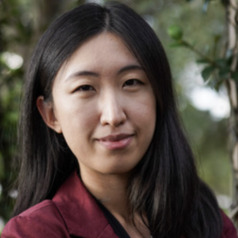
Jianing Li
Assistant Professor of Communication, School of Communication and Information, Rutgers University
I am an Assistant Professor at Rutgers University’s School of Communication and Information, Department of Communication.
My work examines the intersection of mis/disinformation, structural inequalities, and contentious politics. I specialize in computational methods, quantitative methods, and mixed-methods.
Google Scholar
My research asks: How do people make informed decisions in today’s digital media environment with growing concerns over mis/disinformation, structural inequalities, and contentious politics? My work focuses on: (1) identifying dissemination of and discourses around mis/disinformation on digital platforms; (2) examining efforts aimed at mitigating mis/disinformation, e.g., fact-checking, content moderation, social media skepticism, media literacy, and cross-racial solidarity building in the face of racialized disinformation; and (3) studying how the broader media ecology interacts with identity and social inequality in shaping misperceptions, policy preferences, and support for racial justice movements.
Methodologically, I use computational methods (natural language processing, machine learning, network mapping), experiments (quasi-experiment, web-based dynamic experiment), large-scale panel surveys, mixed-methods approaches, and work on the integration of textual, behavioral, and/or social geographical data.
My work has been published in peer-reviewed journals including Journal of Communication, Human Communication Research, New Media & Society, Political Communication, Information, Communication & Society, Social Science & Medicine, Mass Communication and Society, and Social Media + Society. My work also appeared in public-facing outlets including The Washington Post, Brookings TechStream, and MediaWell.
My research has been funded by the Social Science Research Council, the International Fact-Checking Network, and the Knight Foundation. I have received the Thomas E. Patterson Best Dissertation Award from the American Political Science Association, Paper of the Year award from Mass Communication and Society, and several Top Paper awards from the International Communication Association and the Association for Education in Journalism and Mass Communication.
I received B.A. in Journalism and Sociology from Peking University, M.A. in Journalism and Mass Communication from the University of Wisconsin-Madison, and Ph.D. in Mass Communication from the University of Wisconsin-Madison.
Less ![]()
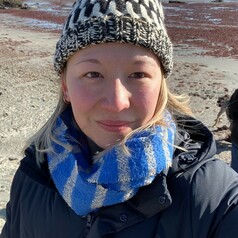
Jianni Tien
Postdoctoral Research Fellow, University of Sydney
Dr. Jianni Tien is a Postdoctoral Research Fellow in the Sydney Centre for Healthy Societies at the University of Sydney. Jianni works at the intersection of science and technology studies, the feminist environmental humanities, and sociology of health. She researches the ontologies and epistemologies at work in our Anthropocene era and the power structures that underpin them, including questions of situated and enforced Western knowledges. Jianni's doctoral research examined the affective power of scuba diving in cenotes - naturally occurring sinkholes - and how to harness such affective power in order to ethically respond to the complex dilemmas of the Anthropocene. Her current research projects include the social dimensions of innovations in nanosensing biotechnology; human-microbial relations, and the politics of the transcorporeal in lung cancer stigma.
Less ![]()

Jianqing Chen
Assistant Professor of East Asian Languages and Cultures and of Film and Media Studies, Arts & Sciences at Washington University in St. Louis
I am a scholar of Chinese film and digital media at Washington University in Saint Louis. I am currently working on a book manuscript titled Touchscreen Media: The Touch and Its User-Spectators in Twenty-First Century China.
Less ![]()

Jianxin Wang
Associate Professor of Finance, University of Technology Sydney
worked at a major US bank in Chicago before joining UNSW in 1994
Less ![]()

Jianying Zhang
Research Professor of Orthopaedic Surgery, University of Pittsburgh
My current research is focused on tissue engineering and regenerative medicine, especially on developing new biomaterials and new drugs to enhance wounded tissue (bone, cartilage and tendon) healing. I understand that successful development of a tissue engineered product requires the integration of new knowledge across diverse fields, such as material science, biochemistry, cellular and molecular biology, pharmaceutical chemistry, and polymer chemistry. I have been fully trained by these multiple fields and have more than 30 years of professional experiences in developing new biomaterials and new drugs for wound healing and tissue regeneration and repair. I have established a proven track record of successfully completing productive research projects with more than 100 published scientific papers, and more than 30 patents. One of my patents (US7264823) has been licensed and the patent products have been approved by US Food and Drug Administration (FDA) for clinical use. Due to my outstanding contribution in research, I was awarded “Pitt Innovator Award” by the University of Pittsburgh for three times, and one of my research papers is warded as an outstanding research paper by American Foot & Ankle Society in 2020.
Less ![]()

Jiawei Chen
Assistant Professor of Finance, University of West Alabama
Jiawei Chen is an Assistant Professor of Finance at the University of West Alabama.
Less ![]()

Jide Edu
Lecturer in Computer and Information Sciences, University of Strathclyde
My primary research focus revolves around the domains of security and privacy. Specifically, I delve into AI security, IoT and smart home security, risk management, identity management, digital forensics, and usable security. I collaborate with experts across different disciplines. Prior to embarking on my academic journey, I honed my expertise as an IT security specialist.
Less ![]()

Jie Wang1
Professor of Computer Science, UMass Lowell
Prof. Wang's current research interests include text mining algorithms and systems, data modeling and its applications, and combinatorial optimizations. His previous interests included large-scale network dynamics, cloud computing and search over encryption, network security, wireless networks, and computational complexity theory. He is particularly interested in algorithmic problems and mathematical modeling arising from practical applications, including data analysis and applications, intelligent text automation, wireless sensor networks, computational medicine, networking, and online social networks. He worked on computational complexity theory from late 1980's to early 2000's, including structural complexity, average-case complexity, and average NP-completeness.
Less ![]()

Jieling Xiao
Reader in Architecture and Sensory Environments, School of Architecture and Design, Birmingham City University
Dr Jieling Xiao is a Reader in Sensory Urbanism and Design at the Birmingham School of Architecture and Design. Her research interests lie in theories and creative practices of place-making and environmental design that interpret and play with people’s sensory experiences, particularly concerning smellscape and soundscapes. Her co-edited issue on 'Smells, Wellbeing and the Built Environment' explores how smells affect people’s everyday experiences, wellbeing, and emotional connections to places. She advocates for designing environments that consider olfactory elements—the scents of greenery, water, and other natural features—as part of urban planning, which can contribute to both restorative environments and place identity. Her recent collaboration on the Multi-Modal Hong Kong project, explores new ways of documenting soundscapes and smellscapes of the living heritage in Hong Kong.
Less ![]()
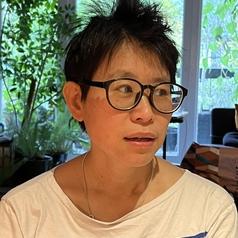
Jieun Kiaer
Professor of Korean Linguistics, University of Oxford
Jieun Kiaer is the YBM-KF Professor of Korean Linguistics at the University of Oxford’s Asian and Middle Eastern Studies Faculty. Her research encompasses Asian linguistics, focusing on marginalized languages, and multimodal linguistics, including gesture studies. She also investigates the impact of AI on linguistic justice and diversity, with a specific emphasis on minoritized and under-resourced languages.
As a linguist, pragmatist, and specialist in Asian studies, Professor Kiaer has published extensively in theoretical and applied linguistics as well as translation studies. Her work transcends traditional Western, text-centric approaches to language, embracing non-European and multi-modal perspectives to offer a more nuanced understanding of human communication. Her recent publications include Lessons from a Translingual Romance (Palgrave Macmillian 2023) Emoji Speak (Bloomsbury, 2023 June) and The Future of Syntax (Bloomsbury, 2023).
Less ![]()

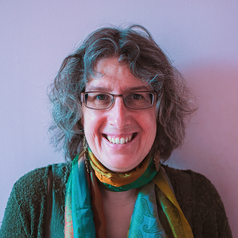
Jill Brooks
Research Fellow, Institute of Cancer and Genomic Sciences, University of Birmingham
I am a Research Fellow, based in the Institute of Head and Neck Studies and Education (InHANSE), within the Institute of Cancer and Genomic Sciences at the University of Birmingham, UK. InHANSE aims to improve the lives of people with head and neck cancer through research. My own research focuses on the tumour microenvironment, anti-tumour immune responses and biomarkers for treatment selection and response.
Less ![]()

Jill Colton
Program Director: Secondary Programs and Senior Lecturer: English and Literacy Education, University of South Australia
Jill is Program Director of the undergraduate and masters level secondary teaching programs at the University of South Australia, where she is a Senior Lecturer in English/literacy education, and a researcher in the Centre for Research in Educational and Social Inclusion. Jill has extensive experience teaching and leading in secondary schools and university settings. Her research interests include teaching and learning with diverse students, multimedia and learning spaces, and engaging young people in reading and writing.
Less ![]()
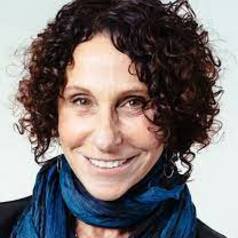
Jill Hollenbach
Professor of Neurology, University of California, San Francisco
The Hollenbach Lab specializes in analysis of the extremely polymorphic human leukocyte antigen (HLA) and killer immunoglobulin-like receptor (KIR) immunogenetic systems. In addition to their critical role in transplantation, over 100 infectious, autoimmune and pharmacological disease phenotypes and cancers are associated with genetic variation of HLA and KIR, which also have functional interaction with one another. Our work spans the population genetics, evolutionary history, and influence on human health of these complex genomic regions, with particular emphasis on their role in neurological disease.
Less ![]()
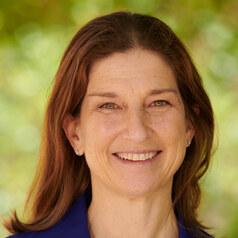
Jill Horwitz
Professor of Law and Medicine, University of California, Los Angeles
Jill Horwitz is the David Sanders Professor in Law and Medicine at UCLA School of Law and Professor of Public Affairs (by courtesy) at the UCLA Luskin School of Public Affairs. She was the Vice Dean for Faculty and Intellectual Life at the School of Law for the academic years 19-20 and 20-21. She is also a Research Associate at the National Bureau of Economic Research and Adjunct Professor of Economics at the University of Victoria Department of Economics in British Columbia, Canada. Prior to joining UCLA in 2012, she was on the faculty at the University of Michigan, where she was the Louis and Myrtle Moskowitz Research Professor of Business and Law and Co-Director of Law and Economics. She also held joint appointments at Michigan with the School of Public Health and the Ford School of Public Policy.
As the Reporter for the American Law Institute Restatement of the Law, Charitable Nonprofit Organizations, Professor Horwitz has led the ALI’s first Restatement on the subject.
At UCLA, Professor Horwitz teaches Torts, Health Law, Nonprofit Law, as well as seminars in law and economics, governance, and health care reform. Both a legal scholar and policy expert, Professor Horwitz is addressing some of the most pressing law and policy issues of our day, including the opioid crisis, health insurance, and health care markets. A highly productive scholar, she has published widely in top law reviews, health policy journals, and economics journals. Her empirical research on hospital ownership and medical service provision has won several awards.
Professor Horwitz received her B.A. with honors from Northwestern University. She holds a Master’s Degree in Public Policy, a J.D. magna cum laude, and a Ph.D. in health policy, all from Harvard University. Following law school, she served as a law clerk for Judge Norman Stahl of the U.S. Court of Appeals for the First Circuit. Horwitz is a fellow at the National Academy of Social Insurance and a member of the Bar of the Commonwealth of Massachusetts, and has been a member of the Board of Advisors at the New York University National Center on Philanthropy and the Law.
Less ![]()


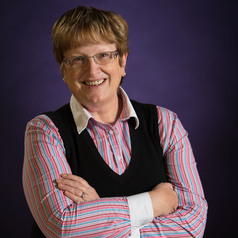
Jill Slay
Professor Jill Slay's research has focused on Forensic Computing for the last ten years although she has a well-established international research reputation in a range of aspects of cyber security including critical infrastructure protection and cyber terrorism.
With a variety of collaborators, she has instigated cross-disciplinary research that draws on social science, anthropology, law, drugs and crime, police and justice studies, as well as systems and communications engineering and IT, to achieve its aims. She has supervised 16 PhD students to completion, and 30 of her Honours and Masters graduates are employed in developing computer forensic and IT security software and networking solutions for industry and the Australian Federal government. She advises industry and government on strategy and policy in this research domain.
Jill has published one book and more than 120 refereed book chapters, journal articles or research papers in forensic computing, information assurance, critical infrastructure protection, complex systems and education. She has been awarded approximately AUD2 million in grant funding since 2005.
Jill is a Fellow of the International Information Systems Security Certification Consortium (ISC2) and a member of its Board. She was made a member of the Order of Australia (AM) in 2011 for her service to the information technology industry through contributions in the areas of forensic computer science, security, protection of infrastructure and cyber-terrorism.
Less ![]()


Jill R. Fehleison
Professor of History and Interdisciplinary Studies, Quinnipiac University
Jill Fehleison is professor of History and Interdisciplinary Studies, and she has taught at Quinnipiac University since 2004. She received her Ph.D. in history from The Ohio State University. She is currently director of Interdisciplinary Studies in the College of Arts and Sciences.
Dr. Fehleison has particular interest in curriculum and pedagogy, and she has presented widely and published on the importance of dynamic curriculum and pedagogies for maintaining student engagement and developing creative thinking. Her courses include many on premodern Europe (Renaissance, Reformation, Women, Witches, and Scotland), Colonial Latin America, and Interdisciplinary Studies.
Her publications include the monograph, "Boundaries of Faith: Catholics and Protestants in the Diocese of Geneva" (2010 Truman State), and numerous articles and book chapters that explore Catholic/Protestant relations in the late Reformation in Savoy/Geneva/Scotland.
Her current research projects include: the emergence of religious tolerance in 16th century Europe, the forgotten women and caregivers of the Reformation, and teaching the Reformation. She is co-author of a Reacting to the Past game about peace negotiations during the French Wars of Religion with Amanda Eurich, Professor at Western Washington University.
She currently serves as the Treasurer and Membership Secretary of the Society for Reformation Research.
Less ![]()

Jillian Hubertz
Clinical Assistant Professor in Speech, Language, and Hearing Sciences, Purdue University
Jillian Hubertz, Au.D., CCC-A is a Clinical Assistant Professor in the Department of Speech, Language, Hearing Sciences at Purdue University. She provides clinical education to students, including diagnostic and intervention services from infancy throughout adulthood in the M.D. Steer Audiology Clinic. She also teaches a graduate level diagnostics course. Special interests include early intervention, implantable devices, and interprofessional education and collaboration.
Less ![]()
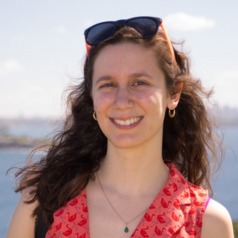
Jillian Jordan
Ph.D. Candidate in Psychology, Yale University
My research investigates human social cognition and behavior, with a focus on cooperation and morality. I integrate approaches from psychology, experimental economics, and evolutionary game theory. I’m interested in questions like: Why do humans condemn others for immoral or selfish behavior? How do we select collaborative interaction partners, and signal our quality as prospective partners? Why do we hate hypocrites?
Less ![]()
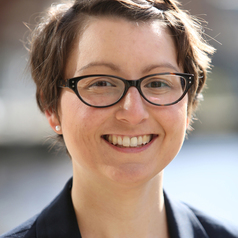
Jillian Rickly
My research sits, most broadly, in the areas of geohumanities and mobilities, with more specific interests that weave together environmental perceptions; authenticity and alienation in travel motivation and experience; identity and bio-politics; and performance theories.
My research interests include: The relationship of touristic motivation to tourism experiences; Authenticity and alienation in tourism motivation and experience; Environmental perceptions, ethics, and uses of sustainability rhetoric; Lifestyle mobilities, lifestyle travel, and hypermobile lifestyle pursuits; Tourism marketing, geographic imaginaries, and identity politics of place branding; Critical heritage studies and museum studies.
Less ![]()

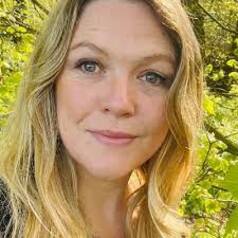
Jilly Kay
Lecturer in Media and Communication, University of Leicester
Jilly Kay is an academic specialising in feminist media and cultural studies. Her research focuses on:
Feminism and popular culture; the gender politics of 'voice'; gender, media and anger; the 'femosphere' and reactionary feminism; reality television and labour
Her first monograph Gender, Media and Voice: Communicative Injustice and Public Speech was published in 2020 by Palgrave Macmillan. She has also published in journals such as Feminist Media Studies, Feminist Media Histories, Continuum, Media History, European Journal of Cultural Studies, and Critical Studies in Television.
She co-convenes the Media and Gender research group, and is co-editor of the European Journal of Cultural Studies.
She is co-investigator on the AHRC-funded project 'Re-CARETV: Reality Television, Working Practices and Duties of Care' (2023-2026).
Less ![]()
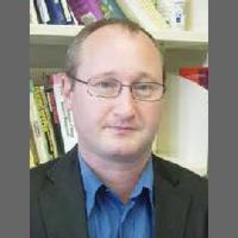
Jim Arrowsmith
Professor, School of Management, Massey University
Graduated from York with a BA hons degree in Politics (2:1, 1989), Warwick with MA Industrial Relations and Personnel Management (distinction, 1991), Manchester Metropolitan University PhD Management (1996). Worked at Warwick University from 1996 until 2008 when moved to Massey University as a Professor.
Less ![]()

Jim Barry
Marine Ecologist, MBARI, San José State University
Jim Barry's research group studies the biology and ecology of marine benthic communities, with a major goal of understand interactions among environmental factors and biological adaptations that influence the survival, growth, and reproduction of organisms, ultimately determining their distribution and abundance. His recent work emphasizes the influence of climate change, including global warming and rising atmospheric carbon dioxide levels, on ocean animals and ecosystems. Environmental conditions throughout the world ocean are changing in response to fossil fuel emissions and greenhouse warming in the atmosphere. Climate change and high carbon dioxide levels in the atmosphere are, in turn, causing a domino-like series of changes in ocean conditions, including ocean warming, decreased oxygen content of deep ocean waters due to reduced mixing of oxygenated surface waters to depth, and ocean acidification. The lab examines the physiological responses of organisms to changing ocean conditions using experiments performed in the laboratory and in deep-sea environments using remotely operated vehicles (ROVs).
Less ![]()

Jim Chrisman
Professor of Management, Mississippi State University
James J. Chrisman is the Julia Bennett Rouse Professor of Management at Mississippi State University. He also is a Senior Editor of Entrepreneurship Theory and Practice. His primary research interests are family business, entrepreneurship and strategic management. He has published over 175 articles in academic journals on those subjects and has been designated as a highly cited researcher seven times by Clarivate and ranked 23rd in his field in the US (38th in the world) by Research.Com. In addition, he has conducted over 1,000 studies of national and state-level Small Business Development Center programs. That work has twice been presented at U.S. Congressional Hearings on Small Business.
Less ![]()

Jim Franklin
Director of Academic Programs, Western Governors University School of Business
Jim Franklin is an associate dean for the School of Business at Western Governors University where he leads the accounting, finance and supply chain programs.
Franklin is passionate about breaking down the financial, time and distance barriers to help everyone have access to a high-quality education and career success.
His most recent work includes serving on the American Institute of Certified Public Accountants CPA Evolution committee, where he helped design the tax competencies that will be tested on future CPA examinations.
For over 10 years, Franklin served as the program director for the Master in Professional Accounting (MPA) Program at The University of Texas at Austin.
Prior to entering academics, he spent over 10 years with Deloitte in Houston and Los Angeles. His client responsibilities included multiple Fortune 500 companies from the automotive, energy and manufacturing sectors.
Franklin holds baccalaureate and master’s degrees from The University of Pennsylvania’s Wharton School and The University of Texas at Austin, respectively.
Less ![]()

Jim Minifie
Productivity Growth Program Director, Grattan Institute
Jim Minifie directs the Grattan Institute's Productivity Growth Program, which is focused on policy reforms to drive Australian living standards. His team is currently focused on structural change in the Australian economy.
Prior to joining Grattan in June 2012, Jim spent 13 years at the Boston Consulting Group, including seven years as Chief Economist for Australia and New Zealand. There he was responsible for leading the firm's thinking on economic challenges – including the global financial crisis, the resources boom and climate change – and their implications for Australian policymakers and corporate leaders. His clients included governments in Australia, Asia and the Middle East and firms in media, online marketplaces, financial services, agriculture, industrial goods, logistics, retail, and resources and commodities.
Examples of his work include:
Public policy and public economics:
• Policy development: growth policy; development policies for middle income economies; foreign investment policy;
• Policy assessment and cost-benefit analysis: assessment of industry development policies and transport infrastructure; climate change policy; energy asset privatisation; low-emissions energy finance;
• Market and contract design: water markets; vocational education market design, energy infrastructure selection and finance design.
Private sector strategy development:
• Regulatory strategy: health insurance, resources, transport infrastructure, airlines;
• Policy impact assessment and response development: trade policy, tax, R&D;
• Pricing and contract design: media & marketplaces, finance, commodity exports;
• Financial structuring and funding: cooperatives, financial crisis response in banking;
• Governance reviews: cooperatives, vocational education, resource management;
• Sustainability strategy development: retailing, resources.
Jim has a PhD in applied economics from Stanford University and honours and masters degrees in economics from the University of Melbourne. His research focused on contracts, incentives, and taxation.
Less ![]()
- Market Data





















